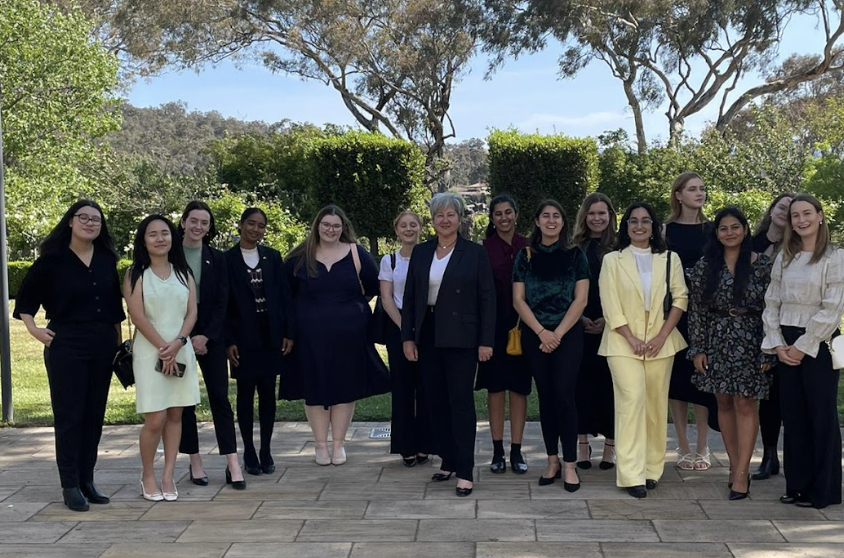As we celebrate International Day of the Girl Child on 11 October, we are reminded of the extraordinary potential, strength, and resilience of girls around the world.
This year’s theme is ‘Girls’ Vision for the Future’—a future driven by the voices of girls themselves. This vision calls for more than just an acknowledgment of the barriers they face; it demands that we take action—that we empower girls to thrive through education, safety, and equality.
We must also reflect on the historical challenges that have shaped the present and recognise how far we have come, while recognising that there is still much work to do. Progress is not a given; it is something we must continue to strive for, together.
Around the world, too many girls are still denied their human rights. Without access to education, their futures—and the futures of their communities—hold less opportunity. Girls particularly in developing nations continue to face immense challenges such as gender-based violence, child marriage, and harmful traditional practices that prevent them from reaching their full potential. Millions are also denied access to education and quality healthcare, including sexual and reproductive health rights.
The UK continues to support global efforts to improve access to education for girls, especially in regions where gender inequality is most severe. As UNICEF highlights, 119 million girls worldwide are out of school. In many places, schools lack the basic hygiene, sanitation, and safety measures needed for girls to attend. Addressing these issues is crucial to ensuring that every girl has a safe, protected, and healthy environment in which to learn.
When girls are given a fair chance, their ability to lead, innovate, and succeed is limitless. Education is one of the most powerful tools we have to change this—by investing in girls’ education, we are enabling them to shape their own futures and build stronger, more resilient societies. Education also enables girls to be better informed, economically empowered, to have more choice in and control of their own lives—from sexual and reproductive health and rights (SRHR) to standing up to child marriage and gender-based violence.
During the Covid-19 pandemic, we supported an estimated 1.172 million Pacific girls to continue their education, through core contributions to the Global Partnership for Education. The UK is a leading donor to global education funds, having pledged £430m in May 2021 to the Global Partnership for Education.
Sexual and reproductive health and rights is a foundation of gender equality. It means women and girls can avoid a life of early, multiple and often dangerous pregnancies and births, and instead make choices about their lives, including to continue their education. Teenage pregnancy is reported to be high in the Pacific, for example, with rates in some Pacific Island countries reaching 54 to 70 per 1,000 births for women aged between 15 and 19 —a contrast against the Sustainable Development Goals (SDG) target of 13 per 1,000 births by 2030.
Through our core contributions to the United Nations Population Fund, we are providing US $70 million to support Pacific women and girls in 14 pacific island countries and territories to meet their family planning needs. This includes increased and improved access to modern contraceptive methods and stronger legal frameworks and policies amongst other deliverables.
The Pacific region also has some of the highest rates of gender-based violence in the world. New research suggests that 46 to 49% of adolescent girls in the Soloman Islands, Papa New Guinea, Fiji and Vanuatu have experienced physical or sexual violence in their short lifetimes. In 2023, the UK and Australia signed a global MOU to work on tackling gender-based violence through better coordinated evidence-based interventions, including in the Pacific. In addition, we are supporting women’s rights organisations and local organisations to prevent and respond to this scourge on society.
We must lead by example—show young girls that their voices matter, and that they can and should be the leaders of tomorrow. By giving them access to education and the opportunities they deserve, we enable them to shape not just their own futures but the future of our shared world.
In a world that is increasingly interconnected, it is not just the responsibility of individual nations but of our global community to ensure that no girl is left behind. In Australia, as in the UK, we have a shared duty to advocate for the rights of girls around the world and to use our collective voices to champion their futures.
The future belongs to them, but it is up to us to provide them with the foundation they need to build it.

